How to get rid of aphids on houseplants – 4 natural methods
Discover how to remove these common houseplant pests for good

Rachel Bull
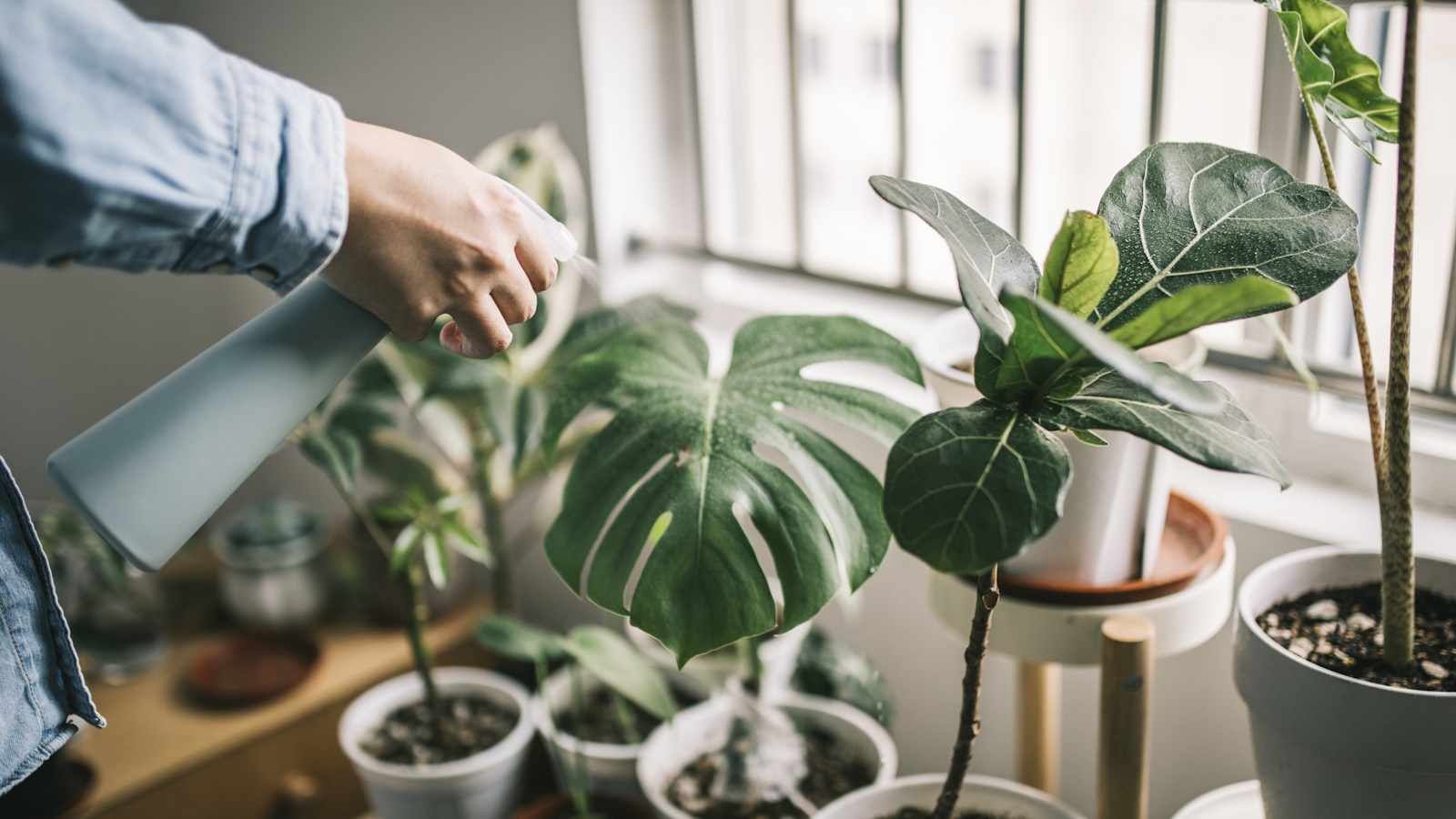
Design expertise in your inbox – from inspiring decorating ideas and beautiful celebrity homes to practical gardening advice and shopping round-ups.
You are now subscribed
Your newsletter sign-up was successful
Want to add more newsletters?

Twice a week
Homes&Gardens
The ultimate interior design resource from the world's leading experts - discover inspiring decorating ideas, color scheming know-how, garden inspiration and shopping expertise.

Once a week
In The Loop from Next In Design
Members of the Next in Design Circle will receive In the Loop, our weekly email filled with trade news, names to know and spotlight moments. Together we’re building a brighter design future.

Twice a week
Cucina
Whether you’re passionate about hosting exquisite dinners, experimenting with culinary trends, or perfecting your kitchen's design with timeless elegance and innovative functionality, this newsletter is here to inspire
Houseplants are a wonderful way to bring life into your home and add that fresh, botanical feel to any room. Unfortunately, when plants are present there is always a risk they will attract pests, and among them, aphids.
Aphids are small sap-sucking pests, which are usually found clustered on outdoor garden plants, such as roses and geums. They can get into our homes carried on the wind through an open window, or even on clothing. Once inside they stay alive by feeding on the sap of your indoor plants, often at the growing end of the plant where the leaves and stems are softer.
Aphids, like other common houseplant pests, can cause damage to your plants' health. As they feed on the sap of the plant they are essentially draining them of all their nutrients, which can cause plants to go yellow and leaves to wrinkle and die. We take a look at four ways you can treat aphids on houseplants and stop them from coming back.
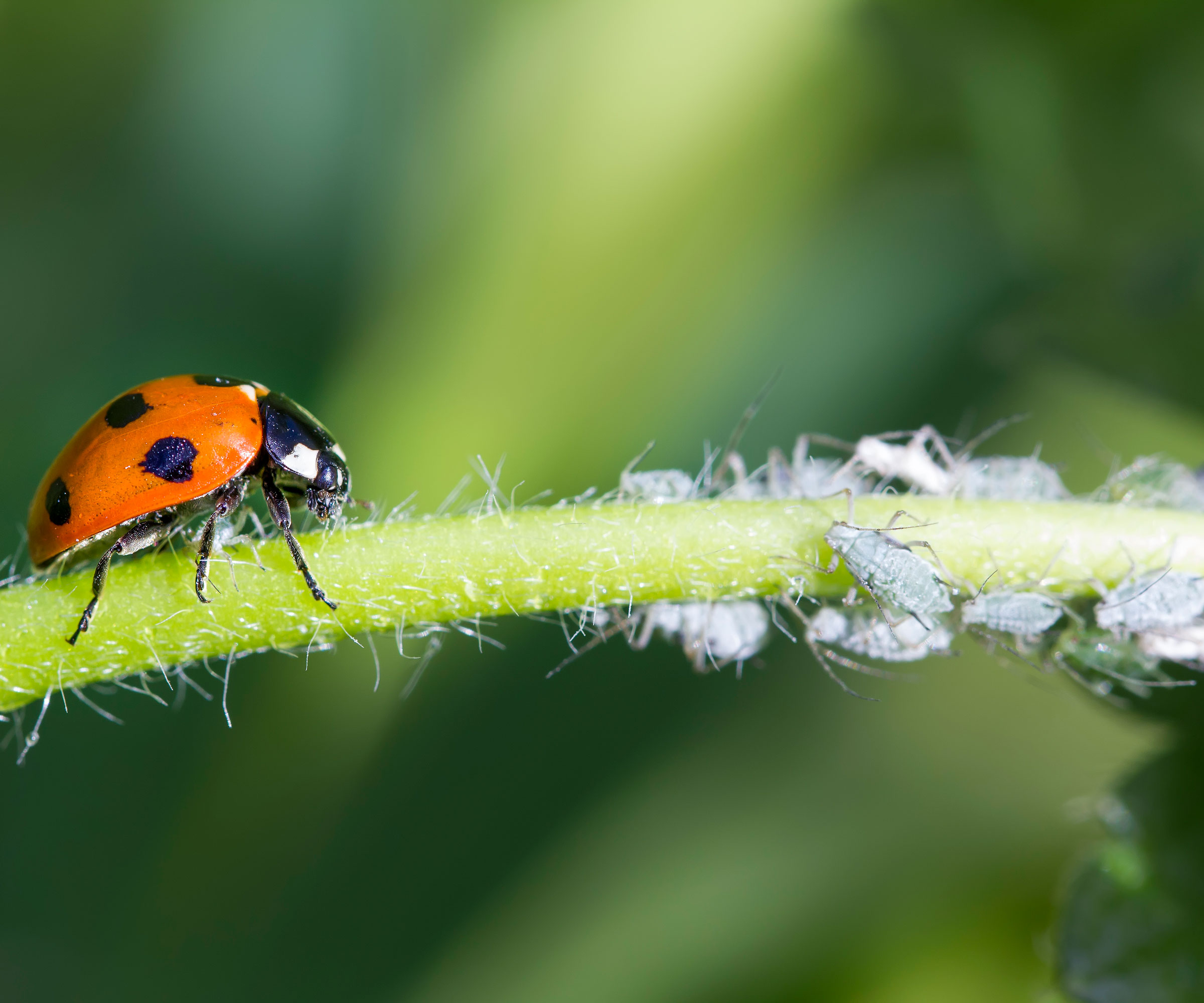
How to deal with aphids on houseplants
It is important that you catch aphids in the early stages so that they don’t completely kill off your plant, or spread to other plants in your home. Once you see the first signs of an infestation, knowing how to get rid of aphids is incredibly important. Try these removal methods below to make sure they are gone from your houseplants for good. Here is the kit you will need:
- Scissors or pruning snips
- Spray bottle, such as this reusable bottle from Amazon
- Dish detergent
- Neem oil, such as this Captain Jack's spray from Amazon
- Sticky traps
- Rubbing alcohol
Inspect new plants before bringing them into your home
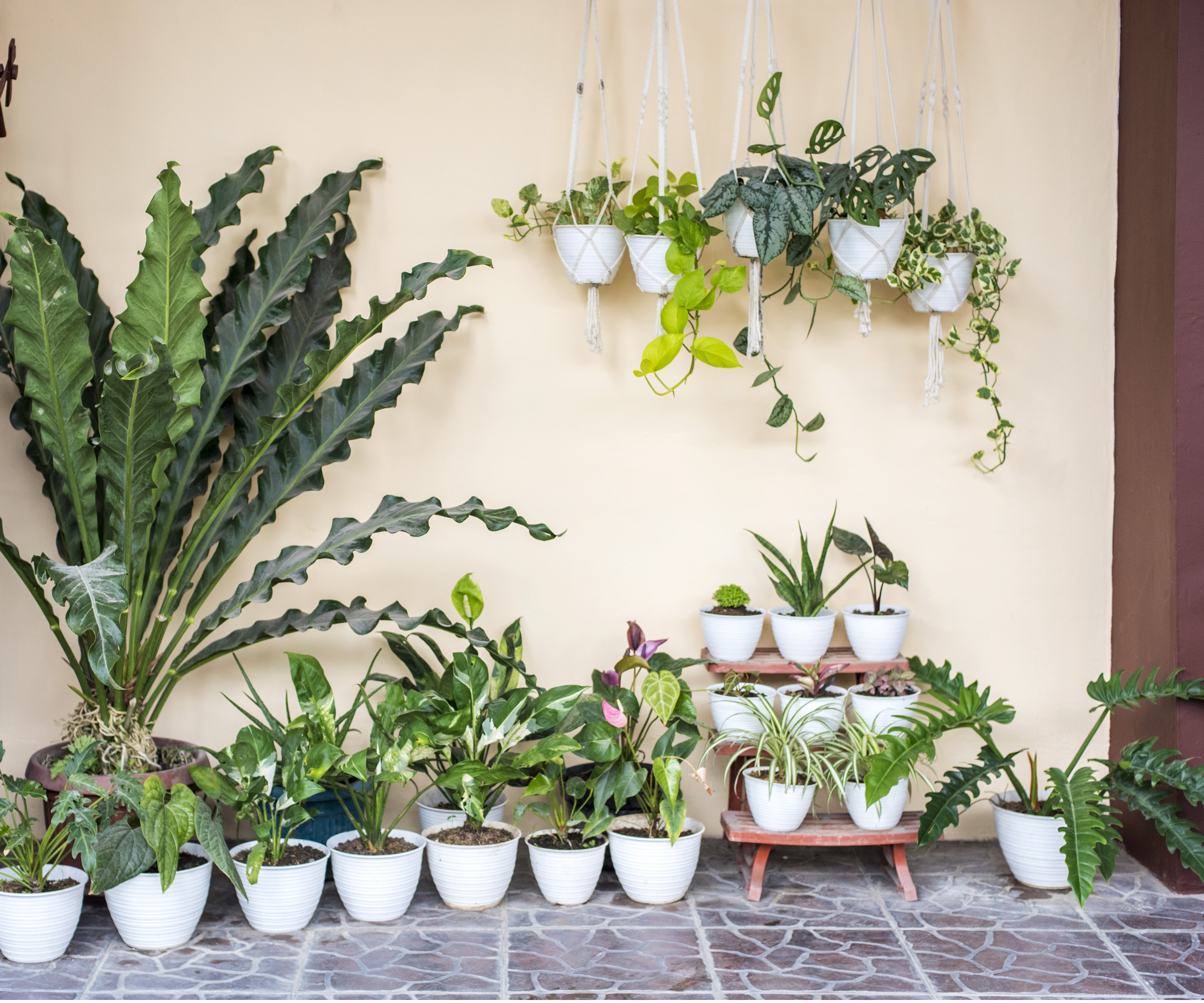
Aphids can sometimes come into your home via new plants that you buy, so make sure that you thoroughly check over all the new plants you are bringing into your home.
If your new plant has already been exposed to aphids, chances are it will have some attached to it. And if this new plant then enters your house it won’t be long until your other houseplants are also suffering with an infestation.
The vital places to check are along the stem of the plant, especially at the top, and under the leaves.
Design expertise in your inbox – from inspiring decorating ideas and beautiful celebrity homes to practical gardening advice and shopping round-ups.
Wipe aphids away or remove infected leaves from your plants
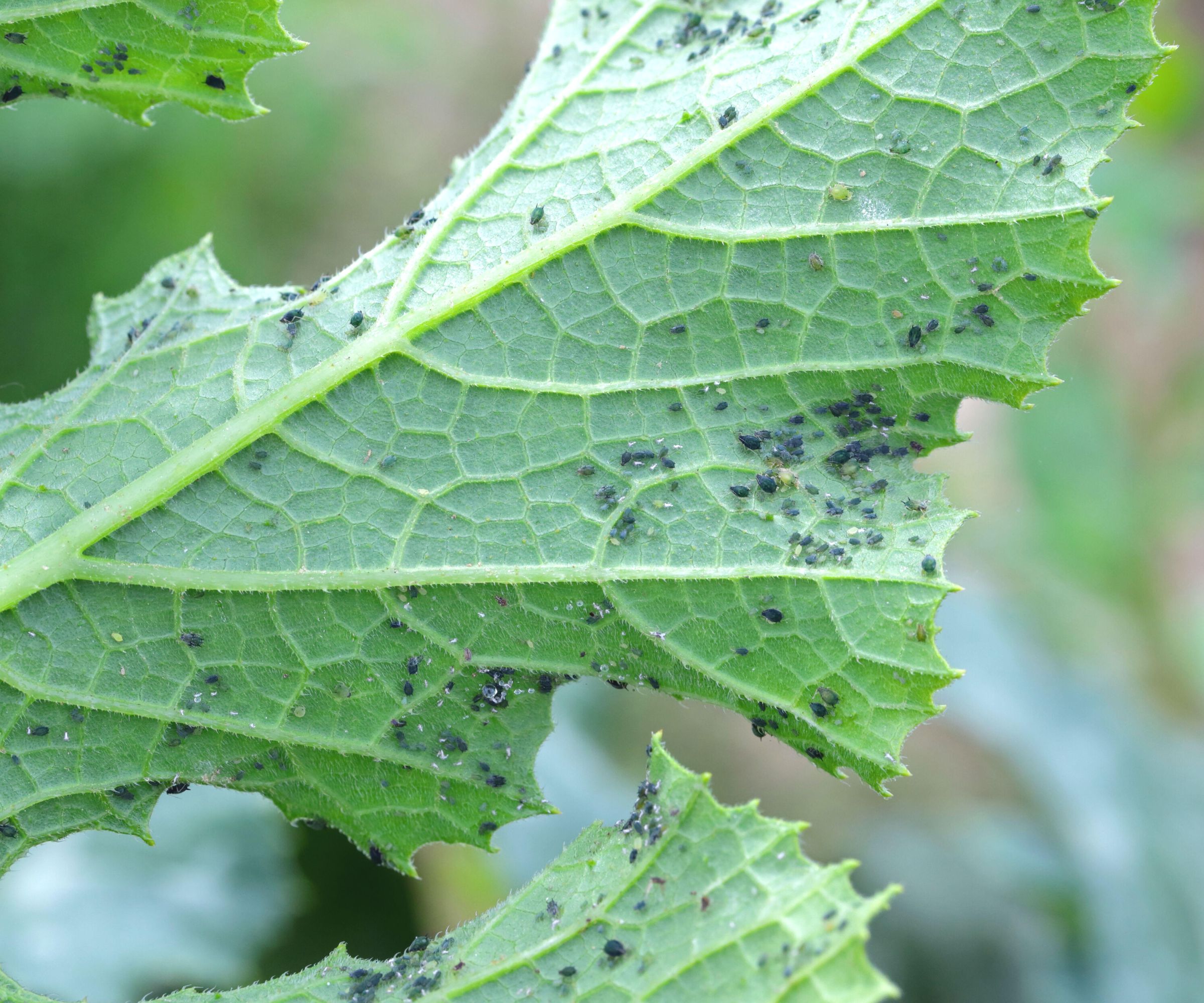
If you are lucky and are able to catch the aphids during the early stages of infestation, then you may be able to get rid of them by removing the infected leaves only, according to houseplant expert Vladan Nikolic.
Since aphids almost exclusively feed on new growth, they're pretty easy to spot, and by removing any leaves with aphids attached should result in a healthy pest-free plant. If you see any other damaged stems, you can also cut these back to help save the rest of the plant.
Alternatively, you can wipe them off using a soft cloth or cotton swab. Sometimes, it might be enough to simply wash them away by running the leaves under the faucet. You may need to give the leaves a helping hand with your fingers to effectively dislodge the aphids.
Natural pest control methods such as this are always our first port of call to try and avoid using chemical pesticides.

Vladan Nikolic, otherwise known as Mr. Houseplant, is a houseplant expert with over 10 years of experience. He is the founder of the houseplant care blog MrHouseplant.com and also an influencer who helps newcomers in the houseplant world become great plant parents. You can find him on Instagram, TikTok, YouTube, Facebook, Twitter and Pinterest.
Spray your plants with dish water or neem oil
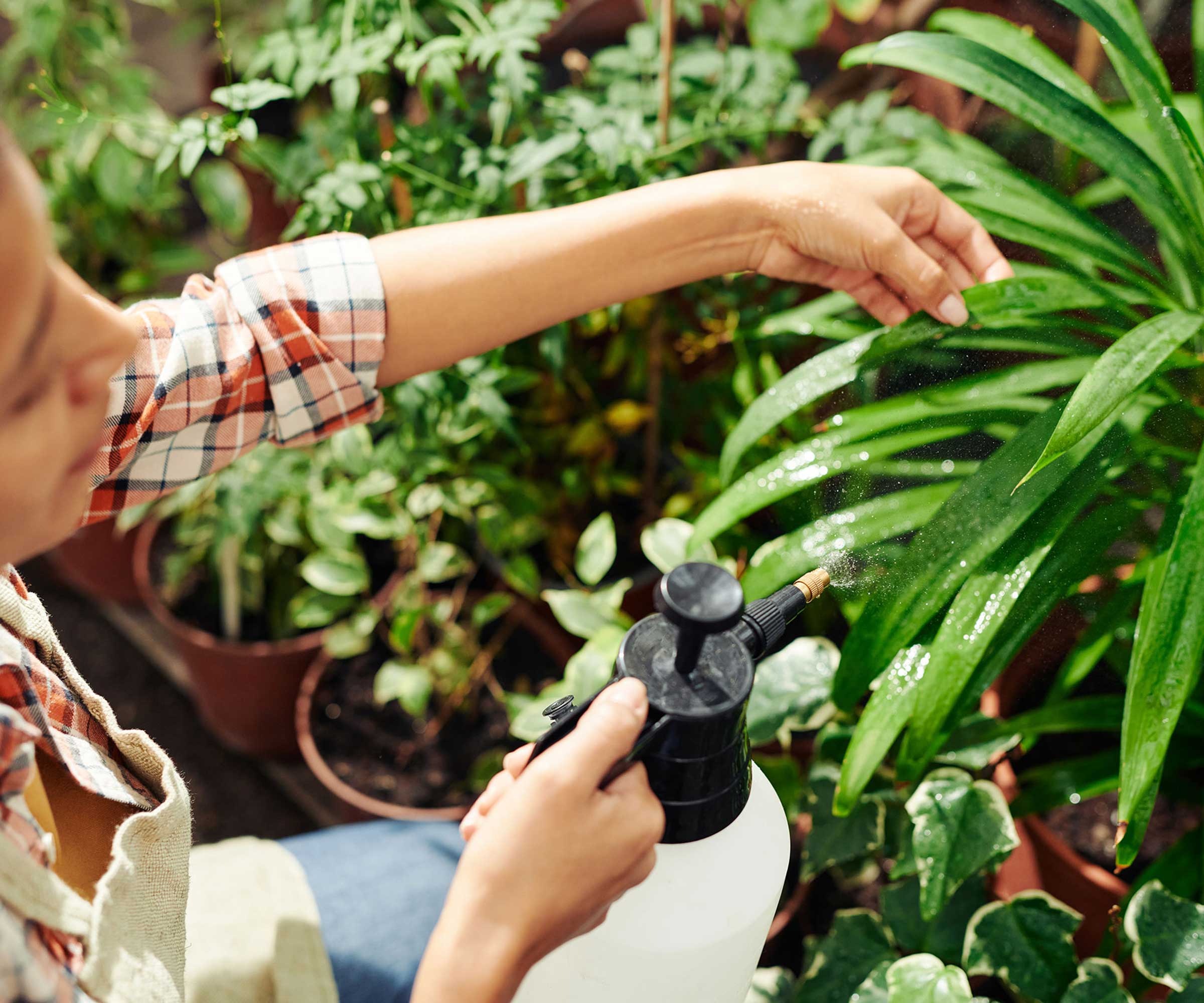
‘Neem oil is a great natural aphid killer, and tends to be my go-to if I find these pests on my houseplants,’ says Allan Bossel, pest control expert and Operations Expert at BBE Bed Bug Exterminator.
Neem oil is entirely organic, and also works well as a general pest deterrant.
Another option is to mix water and a small amount of dish detergent in a spray bottle. Spray this DIY solution liberally over the entire plant, paying attention to affected stems. You can apply neem oil or a DIY spray as frequently as every couple of days, since aphids reproduce quickly and it's important to keep their numbers low enough to be eliminated completely.

Allan Bossel currently serves as an Operations Expert at BBE Bed Bug Exterminator, where his extensive experience in bed bug and pest control allows him to maximize BBE’s service potential. Having founded his own pest control business in Michigan, Allan’s background is rich with over a decade of professional pest extermination and lab work experience.
Use sticky traps to remove aphids
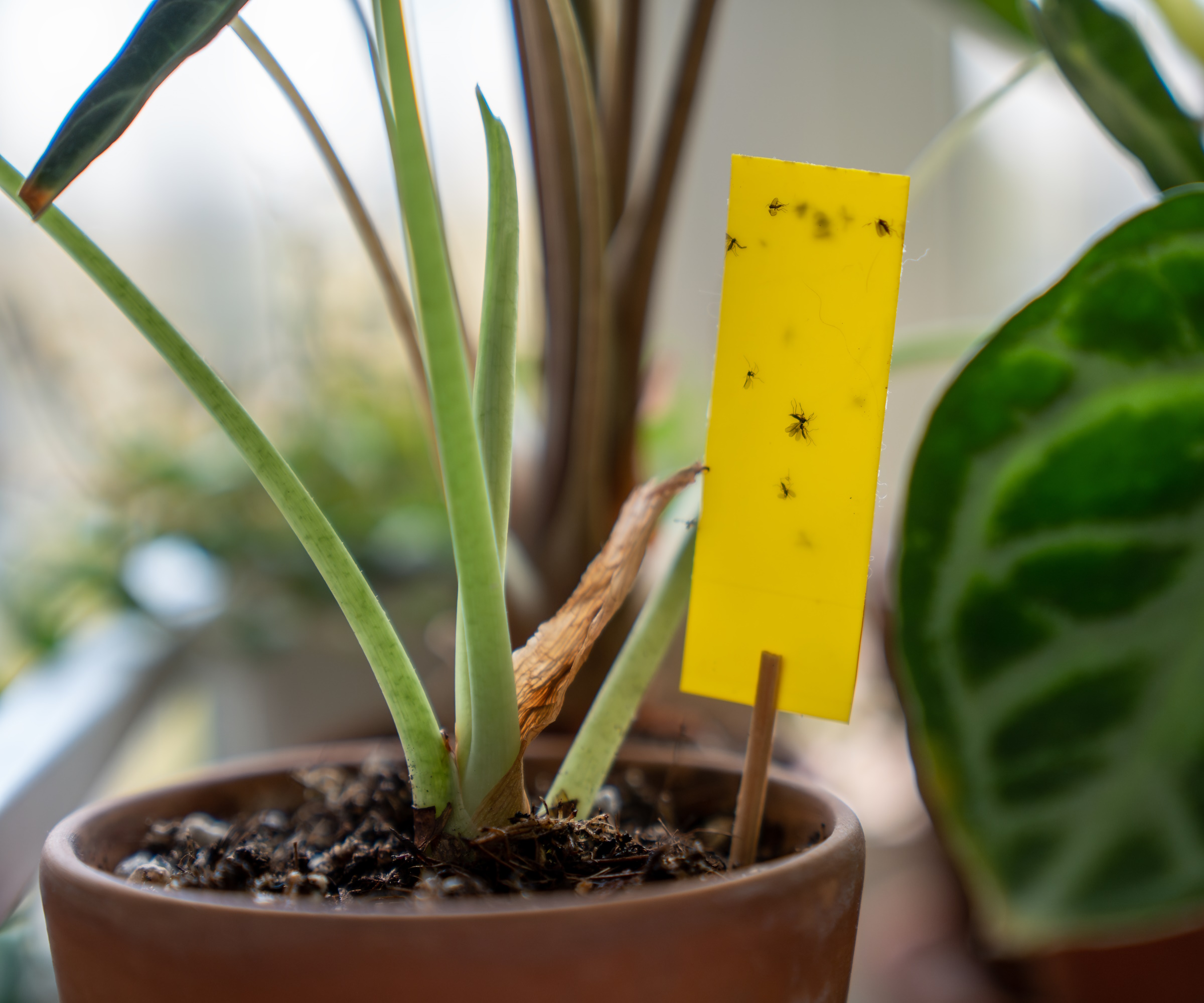
You can place sticky traps, such as these from Amazon, around your plants, either on sticks that are planted in the soil, or hung around the plant itself.
These traps are very effective at catching all kinds of unwanted houseplant pests. They are drawn to the bright colors and should be replaced every few weeks.
FAQs
Why is my house plant infested with aphids?
Aphids tend to infest and multiply on house plants quicker because they have less natural predators such as birds and ladybirds inside. Aphids reproduce very quickly which can lead to large infestations if not dealt with properly.
Another effective way to get rid of aphids on your houseplants is by spraying them with diluted rubbing alcohol from Walmart. It is an effective pesticide for quite a few common insects you might find on your houseplants. To avoid harming your plants, make sure to only spray as a diluted solution. It’s generally recommended to mix 1 part of rubbing alcohol with 7 parts water.

Seraphina is a contributing editor at Homes & Gardens, writing Solved features on organizing and storage. She loves to decorate and also grow her own produce from her home in London. Her previous experience includes working at Women's Health and Fabulous Magazine.
- Rachel BullHead of Gardens